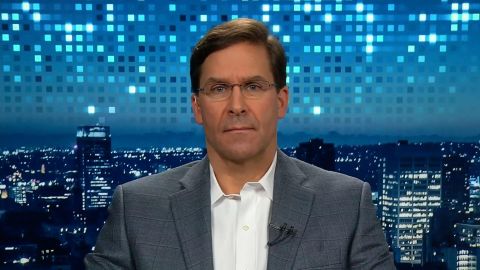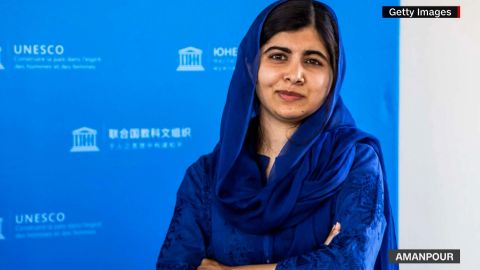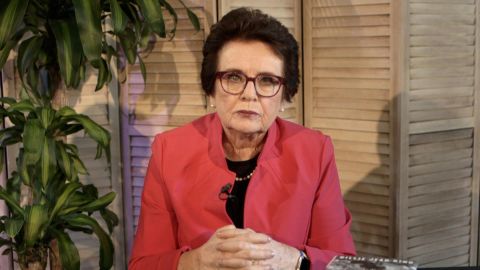Read Transcript EXPAND
CHRISTIANE AMANPOUR: So, look, let me ask you then because, you know, talking to Malala and now you, she started as a young kid but you did as well. You know, you wanted to be a sports girl. You wanted to be a tennis champ. But you also early on identified a world that didn’t look like the one you expected it to be, particularly for girls and their opportunities.
BILLIE JEAN KING, FORMER U.S. TENNIS CHAMPION: Yes.
AMANPOUR: And even while you were, you know, sort of perfecting your sports prowess, you got all sort of sexist questions about when would you settle down and get married and have kids. How difficult was it for you as a young girl?
KING: Well, compared to women in other countries, I would say it wasn’t difficult. But it was difficult in my own small world. And that I knew I was a second-class citizen very early at school. Boys were always called on. Always — everybody put all their focus on the boys. There are very few sports available to girls. I wanted to be a professional baseball player. Well, only men can play baseball at the professional level. Even today. So, I got very, very lucky, Christiane, when Susan Williams in 5th grade asked me, do you want to play tennis? I go, what’s tennis? So, anyway, she got me to it. Then I went out to the public parks where they — with Clyde Walker where they gave free instruction and free access to the courts, and that is the day that changed my life. At the end of that day, I knew I wanted to be the number one player in the world. And then if you fast forward one year when I was 12, when I’m starting to play in tournaments for rankings, I was daydreaming and realized that everybody who played had white shoes and white clothes, played with white balls and everybody who played tennis that I knew at that time wore white. And I asked myself, where is everyone else? And that was my epiphany and the moment I decided I would fight for equality the rest of my life. And in you are own little microcosm of life,tennis, we had a lot to do to correct that. It’s been a long haul just to croquet that. But it also reflects what’s going on. And tennis being international has an opportunity to affect the whole world. Every time a player becomes good and people notice them, they have a chance to help their village, they have a chance to help their town, their country and to be leaders. And they found even in business, women who are in the C suites, most of them, 94 percent identify with being an athlete. So, we need more CEOs. We need more of everything out there. And women have to be educated just like the boys and everybody else. And no matter how you would — you know, how you identify with gender, everyone should be educated, everybody should be a represented in all aspects of society.
About This Episode EXPAND
Former Defense Secretary Mark Esper and Nobel Peace Prize Laureate Malala Yousafzai weigh in on the unfolding situaiton in Afghanistan. Tennis legend Billie Jean King discusses her new memoir “All In.”
LEARN MORE


